'Is Gen Z really addicted to doomscrolling?'
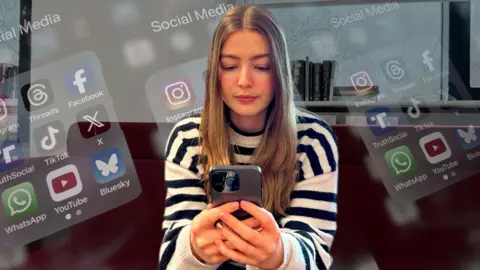 BBC
BBCWe are all guilty of doomscrolling through short-form content.
But is it becoming Gen Z's defining bad habit?
I often lose track of time watching TikToks and Reels in the evenings - more time than I'd like to admit - so I wanted to find out if other under-30s are doing the same thing.
And is it changing our ability to take in long-form content.
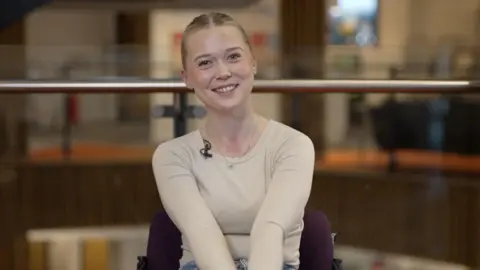
I visited Bournemouth University to chat to students about whether they feel the content is interfering with their everyday life.
Greta Gustafsson told me it does happen to her: "It becomes an addictive scrolling and it's very hard to manage my time because of that and think about prioritising the right things because I'm so sucked into the content. It's escapism.
"From my own personal experience, sitting in lectures for example as a uni student, you see everyone picking up their phones every five to 10 minutes.
"I try to be mature about and I try to control it in a very sensible manner."
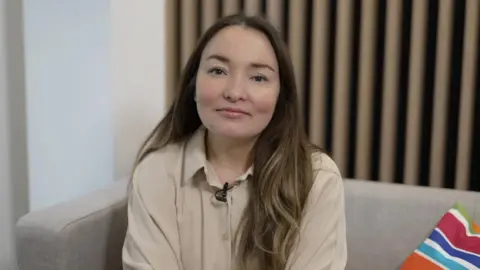
While at the university, I sit down to chat with Dr Elvira Bolat, associate professor in digital marketing.
I'm keen to find out whether this type of content is actually having an impact on our brain or whether it is simply because it's enjoyable?.
Still with me?
Dr Bolat says: "What happens in our brain actually is that we have this release of dopamine.
"It's sort of like a reward system in the brain where you end up being entertained very quickly.
"And of course we want to be entertained much more frequently.
"So our brain ends up being conditioned to scrolling through and scrolling through and as a result we keep losing track of time."
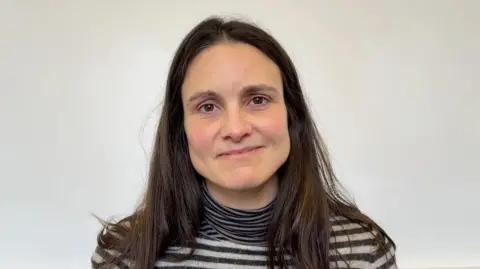
In Oxford, Dr Karen Mansfield, a Postdoctoral Researcher from the Oxford Internet Institute, agrees that short-form content can become a bad habit.
But she says more research is needed to understand why: "We are creatures of habit. So if we tend to do something quite frequently then we will carry on doing that.
"What we need to understand is exactly which kind of contents are more likely to make it difficult for young people to put their phone down and to control their behaviour."
Allow TikTok content?
Zak Travess is also studying at Bournemouth University and in his spare time creates the content we spend hours watching.
He found a niche for baking content during the Covid-19 pandemic and now has over 300,000 followers across his platforms.
But how does he maintain a healthy relationship with this type of content when he also sees it as a job?
"As a content creator, I think it's really important for me to find that balance," he says.
"As great as social media is, and the positive always outweighs the negative, there are some cons to doing social media.
"It does sometimes interfere. You know, if I'm having a bit of a break from uni work, I can scroll on TikTok and not even realise the time I've lost."
Impact on mental health
Samara says they struggled during their A-levels to juggle everything and that content online made it even harder.
"It's ultimately a balancing act.
"You want that dopamine hit but when you go on social media you see all these influencers, living this life and you try to live up to that expectation."
They now work full time and are a Young Minds Activist.
Samara says more needs to be done to help young people: "More social communities. More places people can come together because social media can be quite toxic.
"As much as it's good, it can be very bad. And we want places that don't foster that toxic culture."
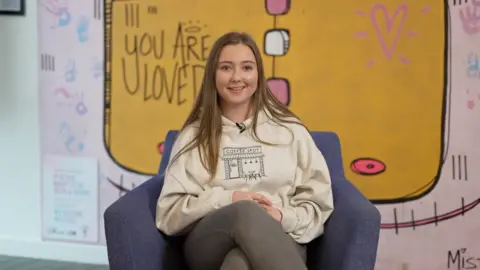
But not every one feels the same. Back in Bournemouth, student Hannah Clubley says she doesn't find short-from content gets in the way of her studies: "I think it can be easy to get so consumed by the content and you're just scrolling and scrolling and then like 'where's all the time gone'.
"But I think for me, I am quite a disciplined person anyway, so I don't tend to find that I get caught up in that.
"Occasionally I'm like 'oh I'll have an extra five minutes scrolling'.
"But I don't think it's had a huge impact where I'm losing hours of time."
So it seems there are many reasons to why we doomscroll.
Whether it is a bad habit, the need for a dopamine hit, out of boredom or simply because we enjoy the content, it seems like it's here to stay.
And Dr Karen Mansfield agrees.
When I ask her if the term "brain rot" from short-form content is a real thing she says: "Honestly no.
"Brain rot is a popular term that's been used to describe what people think are the negative impacts of social media on young people.
"But in fact there's no evidence to suggest that consumption of social media in general has a negative impact on our brains."
You can follow BBC Dorset on Facebook, X (Twitter), or Instagram.
